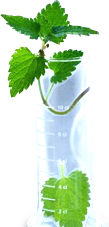



Author(s): Amrutha M, Uma* and P. Sivagurunathan
Arteriosclerosis is the build-up of fatty cells and tissues within blood vessels. Coronary stents implantation is considered as a common method for atherosclerosis cases. Formation of neointimal tissue and high infection rate are the major complications found in stent implantation. The delivery of drugs directly to the site of vascular injury via polymer-drug coated stents can retard the organisms responsible for biofilm formation. Chitosan is widely-used as an antimicrobial agent due to its high biodegradability, nontoxicity and antimicrobial properties. Vitamin E has been approved by FDA as a safe adjuvant and widely used in drug delivery systems. Thus the main objective of this research is to prevent biofilm formation by drugcarrier (Chitosan-vitamin) mixtures. Biofilm formation assay was done using Microtitre Plate method for the determination of biofilm producing organisms. Chitosan was extracted from exoskeletons of crab shells. The stents were prepared and seeded with lyophilized chitosan and a carrier. FESEM analysis and Anti-biofilm assay were done for image of uniform coating in stents and anti-bacterial activity. The inhibitory zones ranged from 32mm to 30mm for drug-carrier coated stents were observed during the analysis. The maximum inhibitory zone of 32mm against high biofilm producing Escherichia coli were observed on coated stents. The Chitosan coated stents slowly gets diffused into the tissues preventing Biofilm formation. Thus the chitosan-vitamin coated stents are considered as a novel biomedical product which prevents biofilm formation.